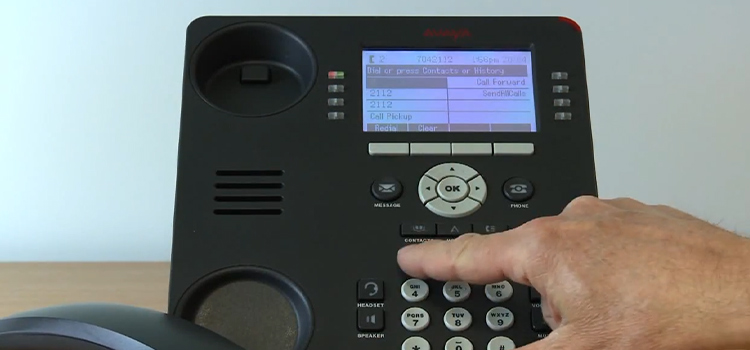Tips for Choosing the Best Dedicated Server
Choosing a dedicated server that is right for you is important if you want your money well-spent. Let’s take a look at some of the tips that can help you choose the best solution for your website needs.
Modern businesses need to establish an efficient and secure presence online. Small companies and solopreneurs can have most of their needs covered by a cheap shared hosting solution. But when your business starts to grow, your website receives tons of new traffic, and you have to manage large amounts of sophisticated data. You have to provide security to your end-users, as well. Shared hosting is no longer an option for you. Also, if you plan to open an e-commerce business, a dedicated server is the only way to go.
While seeming expensive at first, a dedicated cPanel server from a reputable provider can cover all the needs of an expanding business. In addition to better and more stable performance, dedicated servers can prevent financial and reputational losses from data breaches and other hacking activities.

What Is a Dedicated Server?
A dedicated server is the premium option for hosting your website, CRM system, and other informational business resources. Compared to other solutions, it provides improved performance, flexibility, and security.
Unlike shared hosting, you don’t have to share your server with hundreds of other projects. While a VPS can also provide you with a separate space, it still shares a physical drive with other applications.
IMPORTANT:
A dedicated server is a physical machine entirely dedicated to your needs.
A dedicated server can be configured in any way you want, including the OS, scripts, and apps to help you run the website. You can do that yourself or ask the vendor to pre-configure the server for you.
Do You Need a Dedicated Server?
There are 4 basic reasons that you can use to justify opting for a dedicated server. If you have at least one of these needs, it is time to upgrade the hosting plan.
- Handling large volumes of traffic. Traffic spikes lead to performance drops which result in higher bounce rates and customer loss. If you run an aggressive ad campaign and anticipate a traffic surge, be ready to offer the visitors a seamless user experience.
- Security concerns. While security is important for every website, be prepared to offer extra protection if you are handling sensitive user data, like credit card info. Dedicated hosting allows you to install extra measures and customize them to make different types of data hackproof.
- Page loading times. E-commerce stores and other web projects that require constant user engagement need lightning-fast loading times. A dedicated server lets you fine-tune the website to offer the fastest performance and optimal bandwidth to the users.
- Complete control. No other hosting option offers you complete control as a dedicated server does. If your web presence is the “heart” of your business, you need to be able to manage every aspect of it. You can choose anything from hardware specs to OS and applications and change it any time you need.
IMPORTANT:
If you are an IT startup that needs to scale up constantly, a dedicated server can give you the power to develop, grow and reach your goals fast.
Before You Switch to a Dedicated Server
Make a list of your needs and technical requirements before you start comparing hosting plans. Understanding the specifics will help you purchase the best solution without paying more than you have to.
Technological Requirements:
- Transferring your data. Will you be able to migrate your data from old hosting to a dedicated server in a short time without making a lot of adjustments?
- Control and administration. Choose a control panel you are familiar with or go with the most popular option, like cPanel/WHM. Your vendor should also be able to assist you in managing your server and data.
- Framework and licensing. If you have more experience working with Microsoft products or need to run ASP.NET and MS SQL Server, opt for a Windows Server. Otherwise, you’ll be fine working with a Linux server and other open-source software.
- Database requirements. Large databases require more RAM. You will also need more RAM to improve your website loading times.
- Processors. You will need a multi-processor option, like a dual Xeon server for your video processing, virtualization, or SQL data management needs.
- Bandwidth. Handling large volumes of user traffic, running multiple scripts, and streaming multimedia require more bandwidth.
- Storage. Going with RAID will allow you to have good read/write speeds and additional data protection with the mirror copying option.
- Backup. Operating without a backup plan is risky and may cost you your business.
- Datacenter. Choosing a data center tier depends on your uptime, data redundancy, and downtime requirements. Tier 4 data centers can offer 99.9% uptime, full redundancy, and less than 30 minutes of downtime a year.
Financial Requirements:
- Setup costs. Some vendors offer setting up a dedicated server free of charge, others require a fee.
- Licensing costs. Depends on the software you choose to run your server.
- Monthly fees. Most vendors include maintenance and support in the monthly fee. Don’t go for the cheapest option if you don’t have a dedicated IT team.
- Hardware and customization costs. If you need extra drives, processors, or memory, be prepared to spend more. Discuss your hardware needs with the vendor to receive get the best parts for your budget.
- Control and administration. A vendor might charge an additional fee for managing your server.
Conclusion
When choosing a dedicated server, make sure to consider your needs first. Choose a reputable provider based on your previous experience with shared hosting and take a look at the user reviews. The cheapest option is often not the best one, because it can contain hidden costs and surprise fees.
Subscribe to our newsletter
& plug into
the world of technology





